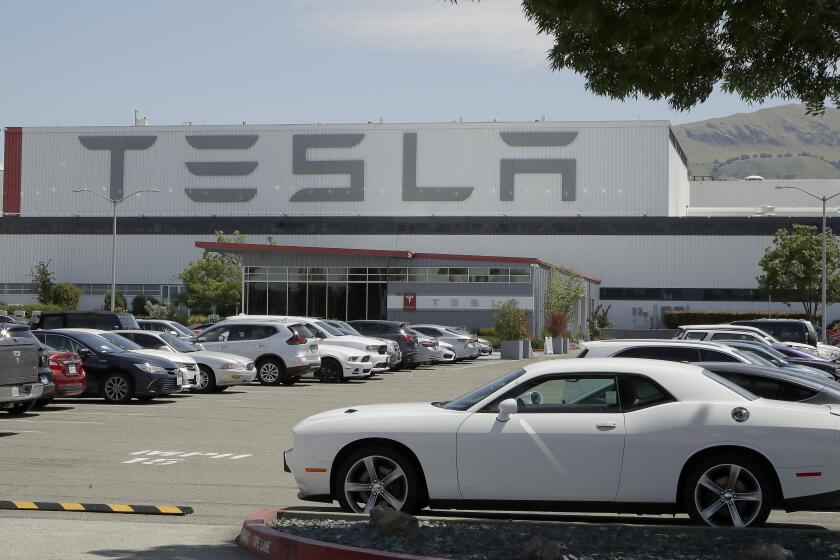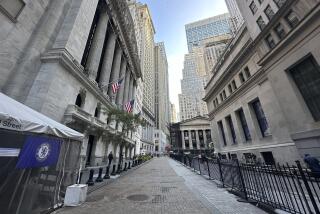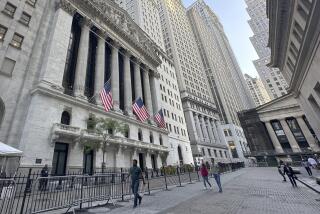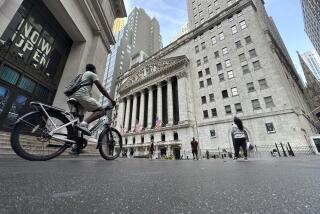Stocks fall after Fed chief Powell backs interest rate increase
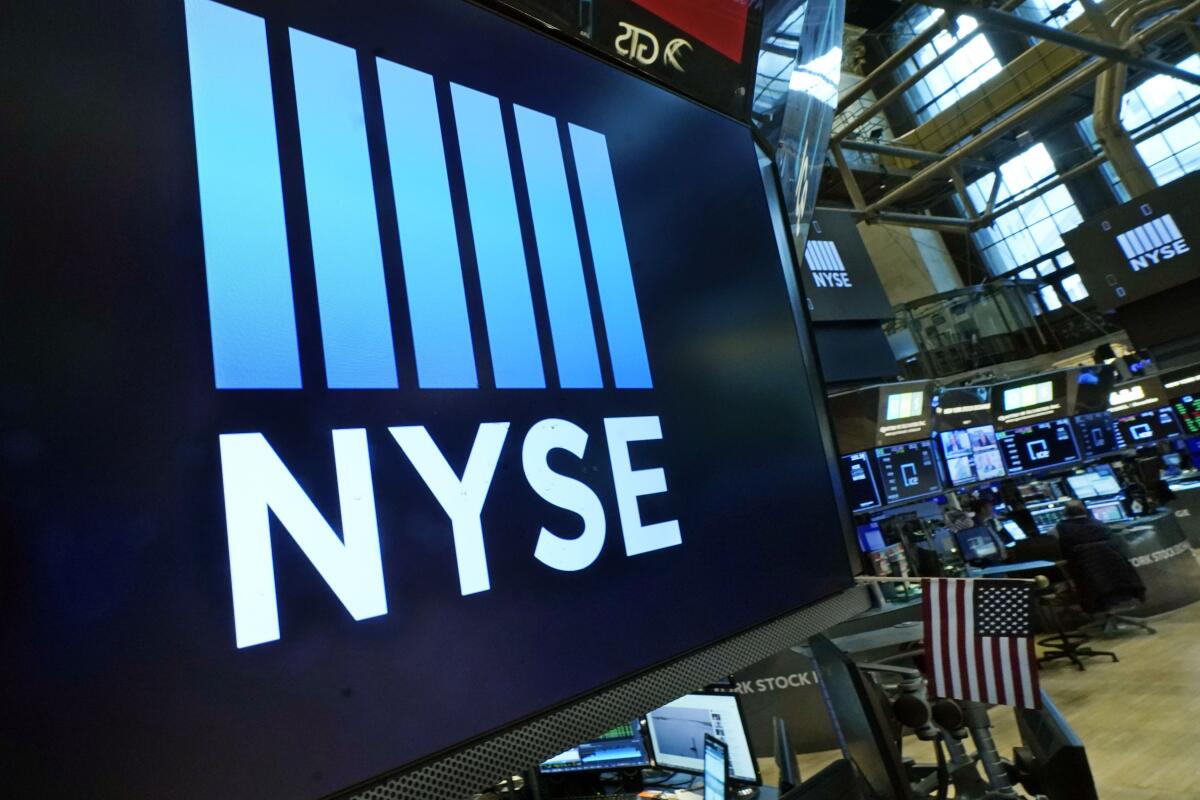
- Share via
NEW YORK — Stocks shed early gains and ended broadly lower on Wall Street on Thursday after the head of the Federal Reserve said the central bank needs to take more aggressive action to fight high inflation.
In a panel discussion held by the International Monetary Fund, Fed Chair Jerome H. Powell said the Fed must move faster than it has previously to tackle inflation, which suggests sharp interest rate increases are likely in coming months.
The Standard & Poor’s 500 index closed 1.5% lower after having been up 1.2% in the early going. The Dow Jones industrial average fell 1%, and the Nasdaq composite slid 2.1%.
The afternoon sell-off left the S&P 500 flat for the week and knocked the Nasdaq into the red. Both indexes came into this week with two consecutive weekly declines.
The benchmark S&P 500 fell 65.79 points to 4,393.66. The Dow dropped 368.03 points to 34,792.76. The Nasdaq slid 278.41 points to 13,174.65.
Smaller-company stocks fell more than the broader market. The Russell 2000 gave up 46.72 points, or 2.3%, to close at 1,991.46.
Workers are heading back to the office in increasing numbers, with larger employers taking a harder line than smaller ones.
The broader market has had a choppy week as investors review the latest round of corporate earnings reports amid lingering concerns about high inflation and the Fed’s shift away from an ultra-low interest rate policy.
The Fed has already announced a quarter-percentage-point rate increase, and Wall Street expects a half-point hike at its next meeting in two weeks. Other central banks have also moved to raise interest rates to try to temper the effects of rising prices on businesses and consumers.
During the panel discussion Thursday, Powell suggested that “there’s something in the idea of front-loading” aggressive rate increases as the Fed grapples with inflation that has reached a four-decade high.
That suggests a half-point rate increase could be on the table when Fed officials hold their next interest rate and economic policy meetings May 3-4, Powell said. In the past, the Fed has typically raised its benchmark short-term rate by more modest quarter-point increments.
More than 80% of the stocks in the S&P 500 fell Thursday, with technology stocks accounting for a big share of the decline. Pricey valuations for many of the bigger technology companies give them more sway in directing the broader market higher or lower. Microsoft fell 1.9% and chipmaker Nvidia slid 6%.
American Airlines gained 3.8% after the carrier told investors it expects to turn a profit in the second quarter as more people resume travel.
Tesla rose 3.2% after the maker of electric cars and solar panels reported strong sales and a sevenfold increase in profit despite global supply chain kinks.
Racist slurs were hurled daily at Black workers at Tesla’s California plant, delivered not just by fellow employees but also by managers and supervisors, California’s civil rights agency alleges in an explosive lawsuit filed against the company Thursday.
Bond yields have been gaining ground as investors prepare for higher interest rates. The yield on the 10-year Treasury rose significantly to 2.92% from 2.84%, hovering near its highest levels since late 2018.
Central bank officials and economists have been warning about slower economic growth as the world moves past the initial surge in activity as the pandemic subsides and persistently rising prices crimp spending. Concerns about a slowdown have been elevated since Russia invaded Ukraine, prompting a jump in energy and commodity prices.
The price of U.S. crude oil rose 1.6% on Thursday and is up roughly 40% for the year. That has made gasoline more expensive, which cuts deeper into consumers’ wallets. Prices for wheat and corn have also jumped, as Ukraine is a key global producer of both. Those staples are key ingredients in a wide variety of food products.
Rising prices for food, clothing and many other goods and uncertainty about inflation have been hanging over the economy even as it continues to show more signs of recovery from the virus pandemic.
The Labor Department reported Thursday that applications for unemployment benefits inched down last week as the total number of Americans collecting aid fell to its lowest level in more than 50 years.
More to Read
Inside the business of entertainment
The Wide Shot brings you news, analysis and insights on everything from streaming wars to production — and what it all means for the future.
You may occasionally receive promotional content from the Los Angeles Times.

